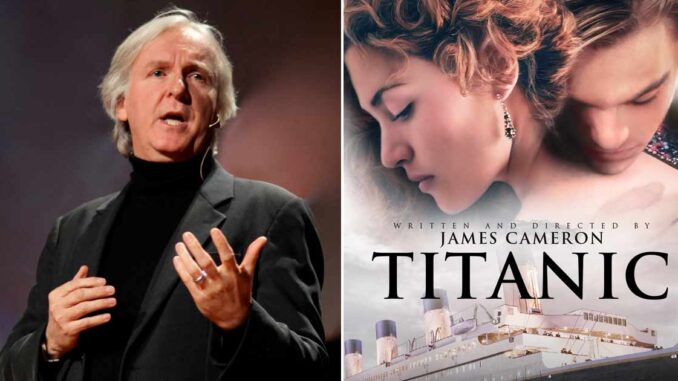
Titanic 2: A Sunken Dream – When Legacy Becomes Leverage
The icy grip of the Atlantic, a century after claiming the “unsinkable” Titanic, holds not just the remnants of a grand tragedy, but also the echoes of countless stories woven from its aftermath. Among these echoes, there's a faint, almost ghostly whisper – the tale of “Titanic 2,” a film that, far from resurrecting the legacy of James Cameron’s epic, sought to exploit it with a brazenness that bordered on the absurd. More specifically, “Titanic 2” became a cautionary tale about the pitfalls of using the memory of an iconic film, and by extension, the stars who embodied it, as mere marketing tools.
The original "Titanic," anchored by the breathtaking performances of Kate Winslet and Leonardo DiCaprio, transcended the genre of disaster film. It was a love story that resonated deeply, a historical drama that felt visceral, and a visual spectacle that mesmerized audiences worldwide. Jack and Rose became shorthand for star-crossed lovers, their fates intertwined with the doomed vessel and the stark social inequalities of the era. The film's legacy, however, rests not just on its romantic core, but on its meticulous attention to historical detail and its unflinching portrayal of the human cost of disaster.
"Titanic 2," released in 2010 by The Asylum, a studio notorious for "mockbusters," films designed to capitalize on the popularity of bigger-budget productions, brazenly jettisoned all pretense of historical accuracy and emotional depth. The plot, if it could be called that, centered around a luxury cruise ship, aptly named “Titanic 2,” retracing the original voyage only to be threatened by a rogue tsunami and an iceberg. It was a low-budget spectacle of terrible CGI, wooden acting, and a plot so ludicrous that it felt like a parody of the original's tragic grandeur.
The sin of "Titanic 2," however, wasn’t simply its cinematic shortcomings. It was its attempt to ride the coattails of the original film's emotional weight, subtly leveraging the iconic images of Winslet and DiCaprio, etched into the collective consciousness. While the film made no direct reference to the characters or the actors themselves, the very title, the thematic parallels, and even the visual cues were all calculated to draw on the audience's ingrained connection to the original. It was a blatant attempt to exploit the audience's nostalgia and emotional investment, reducing a complex and nuanced narrative to a cheap marketing ploy.
Imagine the impact. Winslet and DiCaprio, forever linked to the enduring image of forbidden love amidst devastating loss, were implicitly tied to a film that reduced the gravity of the original to a schlocky, bargain-bin disaster flick. Their performances, lauded for their vulnerability and authenticity, were subtly cheapened by association. The weight of Jack's sacrifice, the power of Rose's resilience, all diminished by the reflected glow of this pale imitation.
This brings us to the core issue: the ethical considerations of leveraging legacy without genuine artistic merit. The original "Titanic" was a product of passion, research, and a genuine desire to tell a compelling story. "Titanic 2," on the other hand, was purely a product of opportunistic capitalism, seeking to profit from the established goodwill of a beloved film. It exemplifies the danger of reducing art to mere intellectual property, stripped of its emotional core and exploited for commercial gain.
Furthermore, "Titanic 2" highlights the inherent power dynamic between creators and those who seek to capitalize on their creations. Winslet and DiCaprio, as the embodiment of the original film’s success, had their performances indirectly exploited without their consent or involvement. It serves as a reminder that while intellectual property laws offer some protection, the emotional and cultural capital associated with a film, particularly one so deeply ingrained in the public consciousness, can be vulnerable to manipulation and misuse.
"Titanic 2," thankfully, sank without a trace in the vast ocean of cinema. But its brief, ignominious existence serves as a potent reminder that legacy is a delicate thing, easily tarnished by greed and a lack of artistic integrity. It's a testament to the power of the original, a film that continues to resonate precisely because it treated its subject matter with respect and humanity, qualities conspicuously absent in its unfortunate namesake. Ultimately, “Titanic 2” proves that simply slapping a familiar title on a subpar product is no substitute for genuine creativity, and that attempting to revive a legacy without understanding its essence is a recipe for a cinematic shipwreck. The real Titanic, and the memories of Jack and Rose, deserve far better.